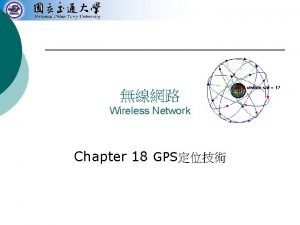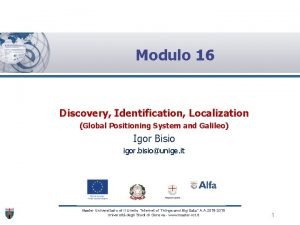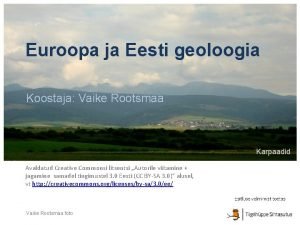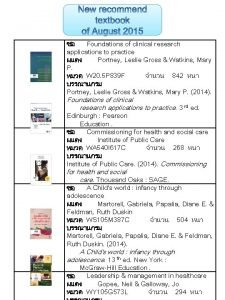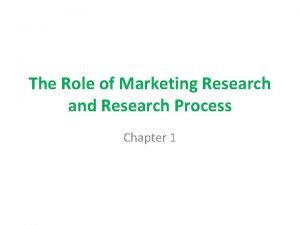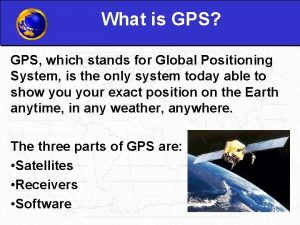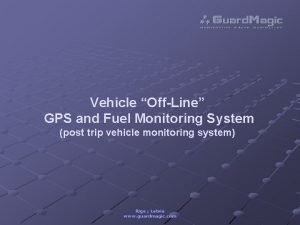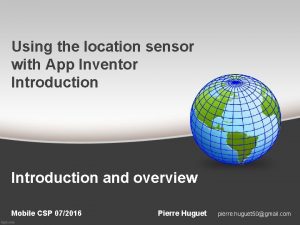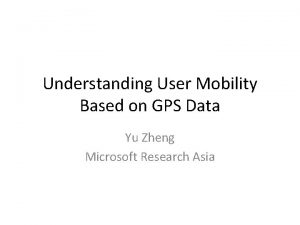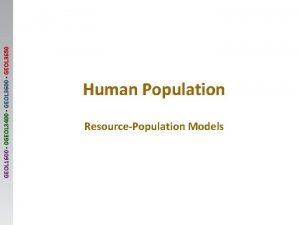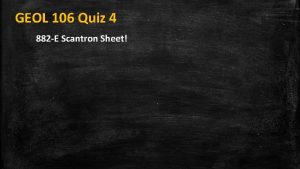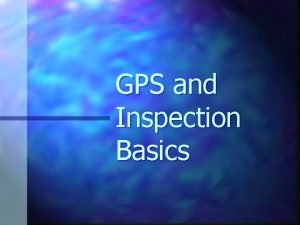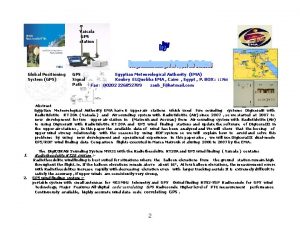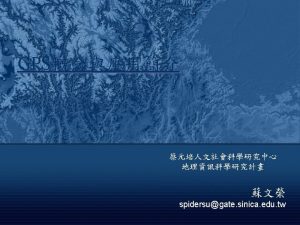GPS Applications in Research GEOL 44085508 Department of










- Slides: 10

GPS Applications in Research GEOL 4408/5508 Department of Geosciences H. Carrie Bottenberg

GPS Applications in Research Instructor: H. Carrie Bottenberg Physical Sciences 225 bottcarr@isu. edu Office: 208 -317 -7378 Office Hours: Tue/Thu 11 -12 pm Otherwise, please email for an appointment or find me in my office. ***Syllabus posted in Moodle ISU

GPS Applications in Research • Course Topics: Overview of satellite positioning systems usage. Topics include GPS/GNSS theory, accuracy and precision, sample design, spatial interpolation, mapping grade GPS collection and precise positioning using GNSS receivers. • Goals: After completing this course, each student should be able to design a GPS research project, collect/correct GPS data, enter the data into mapping software, conduct analysis of the data and produce a final product to answer a scientific problem.

GPS Applications in Research Grading: • Midterm: 15% • Final Exam: 15% • Labs: 40% • Homework/In Class Exercises: 20% • Final Project: 10% • The Midterm will be over material covered in lecture/lab and homework. • The Final Exam will focus on a practical exercise utilizing GPS data and data analysis in GIS. A smaller portion of the final exam will cover lecture/homework material (with an emphasis on material since the midterm). • We will have 3 weekend field trips, each student will have to attend 2. Field trips will be on Friday or Saturday. Participation in each field trip will be 1 lab grade.

GPS Applications in Research Field Trips: Soda Springs- Blackfoot Rift- Water Quality and Travertine- September 16 th Petit Lake Bathymetric Survey & Water quality. October 6 th and 7 th Sawtooth Mountains- Mineral Spectral Signature Ground Truthing – October 21 st

GPS Applications in Research Absent and late policy : Please contact me by phone or email, before the scheduled test, if you are ill and are unable to come to school. Lab work is due at the beginning of class on the day it is due. Late lab work will be accepted with a 10% off your lab grade if not turned in at the due date time.

Format of the course • Some exercises will involve students checking out GPS receivers and collecting/analyzing the data outside of lab period. • Other exercises will be group data collection on local and regional field trips.

Accessibility Statement: Our program is committed to all students achieving their potential. If you have a disability or think you have a disability (physical, learning disability, hearing, vision, psychiatric) which may need a reasonable accommodation, please contact Disability Services located in the Rendezvous Complex, Room 125, 282 -3599 as early as possible.

Academic Dishonesty Statement: It is expected that all students will follow the official Idaho State University Policy on Student Conduct, located at: http: //www. isu. edu/policy/5000 -Student. Conduct-System. pdf. Cheating of any kind such as copying, using electronic devices during tests or plagiarism of any kind will be dealt with in accordance with official ISU policy.

For Field Days • We may be collecting data in different types of weather, be sure to bring attire for working outside and appropriate shoes. • We will not collect data during extreme or dangerous weather conditions. Always collect data with another person!! Let people know (not with you) where and when you will be in the field.
